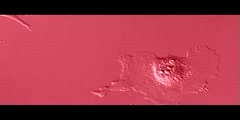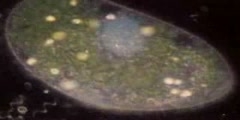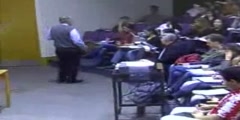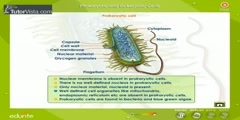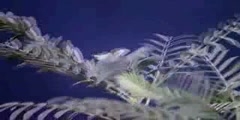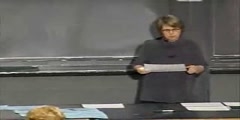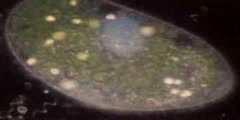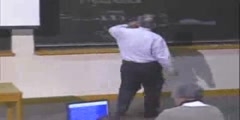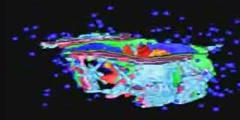Lec 6 - The World Within Us: Microbes That Help and Harm
"Lec 6 - The World Within Us: Microbes That Help and Harm" (October 27, 2009) Julie Theriot, Associate Professor of Biochemistry and of Microbiology and Immunology at Stanford, discusses the different types of microorganisms present in the human body and their functions, the distinction between disease-causing and benign or helpful microorganisms, and the interactions between human cells and both harmful and helpful microorganisms. Stanford Mini Med School is a series arranged and directed by Stanford's School of Medicine, and presented by the Stanford Continuing Studies program. Stanford University: http://www.stanford.edu Stanford University School of Medicine: http://med.stanford.edu Stanford Continuing Studies: http://continuingstudies.stanford.edu Stanford University Channel on YouTube: http://www.youtube.com/stanford
Video is embedded from external source so embedding is not available.
Video is embedded from external source so download is not available.
Channels: Biophysics
Tags: Science biology medicine disease cell biology prokaryotic cells eukaryotic cells bubonic plague E. coli flagella phage ecosystem intestine digestion pathogen organs organelles nucleus DNA genome plants animals multicellular organisms
Uploaded by: stanfordminisch ( Send Message ) on 04-09-2012.
Duration: 111m 48s
Here is the next lecture for this course
Eukaryotic Cell Cycle | Biology | Genetics
04:20 | 16882 viewsCell Biology Under Microscope
00:00 | 22630 viewsStem Cells/Cloning Lecture 1 MIT
50:30 | 17416 viewsComparison Between Prokaryotic And Eukary ...
01:29 | 11655 viewsPlant Cells
00:11 | 26432 viewsThe Biosphere Lecture MIT Prof. Penny Chi ...
45:39 | 13058 viewsLec 3 - Stem Cells & Tissue Regeneration
01:49:57 | 4113 viewsLec 14 - Biology 1A - How Somatic Cells - ...
49:58 | 2974 viewsLec 35 - Biology 1A - Integration: Muscle ...
51:07 | 2411 viewsLec Last- Biology 1A - Integration: Nerve ...
50:50 | 2914 viewsLec 30 - Biology 1A - Lecture 32: Fertili ...
51:25 | 3873 viewsLec 5 - Biology 1B - Lecture 6: Cells, Ti ...
51:25 | 3225 viewsCell Biology Work
00:00 | 23070 viewsLecture on Introductory Biology: stem cel ...
51:36 | 15597 viewsThe Biology of Cells
02:38 | 7048 viewsNo content is added to this lecture.
This video is a part of a lecture series from of stanford
Lecture list for this course
Lec 1 - The Physician in Modern Society
Lec 2 - The 3 Rs of DNA: Molecules to Medicine
Lec 3 - Stem Cells & Tissue Regeneration
Lec 4 - Insights Into the Brain of an Autistic Child
Lec 5 - Genomics and Personalized Medicine
Lec 7 - Influenza Viruses and Pandemics
Lec 8 - The World Outside: A Changing Environment and How It Affects Us
Lec 9 - Healthcare and Health Reform (November 17, 2009)
Lec 10 - Global Health Challenges in the 21st Century
Lec 11 - How Technology Gives Insight into Human Anatomy and Disease
Lec 12 - The Developing Heart in Health and Disease
Lec 13 - Vascular Disorders of the Central Nervous System
Lec 15 - Sounds and Senses: How We Hear and When We Don't
Lec 16 - Breathing, Wheezing and Gasping for Air: Our Respiratory System
Lec 17 - How the Gastrointestinal System Works and Goes Awry
Lec 19 - Learning and Memory: How it Works and When it Fails

